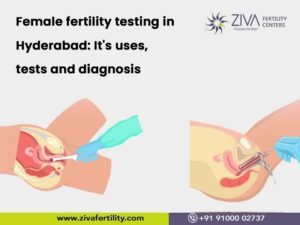Embryo transfer day is that precise moment when your fertility treatment and hope of a successful pregnancy meet. This is a day to celebrate, since many things worked in your favour for this moment to arrive. E.g., your medication worked, the doctors were able to extract healthy eggs, they were able to fertilize them, and voilà, you have healthy embryos ready to transfer. What’s more, you might have more than one healthy embryo. In those cases, the couple can use one embryo to get pregnant and freeze the rest of them. For all this hard work to bear fruits, there are some things that you can do just before an embryo transfer. There are many myths around what should be done and shouldn’t be done. Here, we provide top factual tips for making your embryo transfer successful.
Be sure that you are in the hands of the most experienced doctor.
For the clinic, an embryo transfer might be a regular thing. But for you, it is a once in a lifetime procedure. So I sit on a highly skilled surgeon. We are very happy to say that all our surgeons at Ziva clinic have had years of success with embryo transfers. With their steady hands, our skilled practitioners will follow the ultrasound-guided images like a hawk and will release your hard-won embryos to the precise point.

Prerequisites to get checked
It is a good idea to get the following things checked before proceeding to the actual embryo transfers:-
- Evaluation of the uterine cavity
- Locate any potential barriers to entry (e.g., a cervical growth)
- Find out what kind of catheter should be used.
Ultrasound to check for hydrosalpinx
Hydrosalpinges are a complete no-no for an embryo transfer. Hydrosalpinx is the fluid in one or both fallopian tubes. This is caused due to a previous sexually-transmitted disease or endometriosis. It affects the IVF treatment because it can leak into the uterus, interfere with the womb lining and cause havoc to the freshly transferred embryo. It is highly advisable to have ultrasound testing and a hysterosalpingogram (HSG) before starting IVF treatment. The issues in the fallopian tubes should be fixed before your embryo transfer can happen.
Testing
If the woman undergoing IVF uses her eggs, hormone profiling (FSH, AMH, etc.) is a must, along with a transvaginal scan of your reproductive organs. For the male-partner, semen analysis is suggested. If you are using donor eggs, TSH hormone and Prolactin levels testing is a good idea.
Medication
A very well-proven fact is that a folic-acid supplement helps reduce the risks of birth defects. It is valid for couples trying naturally and through IVF. Start with folic acid one per day from at least three months before your expected embryo transfer.
Before starting medication, please speak to your doctor and ask them about including a vitamin/mineral supplement that includes folic acid, vitamin D, and all your B vitamins.
Rest after your embryo transfer.

It’s a common myth that bed rest is necessary after an embryo transfer. But the truth is to be relaxed and stay upright. Go out for a nice relaxing lunch with your partner but be sure not to take any alcohol. You can stroll around the park without strenuous exercise, heavy lifting, and hot baths. It’sIt’s best if you are active, calm, and dry.
No coughing or sneezing
Sneezing or coughing during an embryo transfer affects the whole process. So if you are having any of these symptoms, please inform your surgeon in advance. While embryo transfer, a catheter is inserted, and sneezing or coughing at that time will disrupt the transfer process. It won’t impact your implantation once the embryos are transferred.
Stay calm and relaxed
The entire process will go smooth if you are light and relaxed before and after the transfer. Some clinics experiment with medical clowns who entertain the couple during these days. If the clinic does not have such a facility, try to watch or listen to something funny, calm, and soothing.
There is a lot you can do while preparing yourself for the embryo transfer. What you do before the procedure bears a lot of weight on the day’s results. You and your partner can give up caffeine and alcohol, do moderate exercise. When both the partners do, there will be an additional support system for the female. If you have a stressful job, take off work for a few days and do what makes you relax.
Here at ZIVA, clinics give equal importance to pre-procedure preparations as much as the actual transfer. If you are on the lookout for the points mentioned above, the actual day will go much smoother. Our in-house counsellors will guide you and answer all your questions with a lot of patience. Reach us at +91-9100002737, +91-9392834024, Info@zivafertility.com or visit us at https://zivafertility.com/.
















